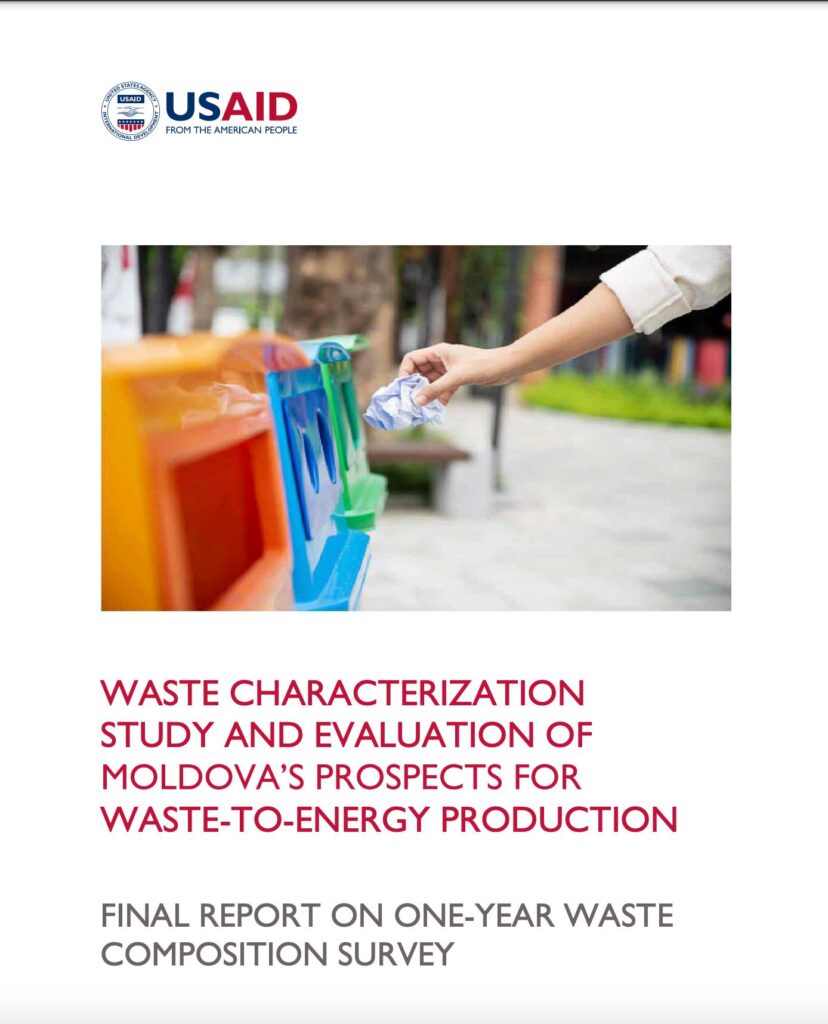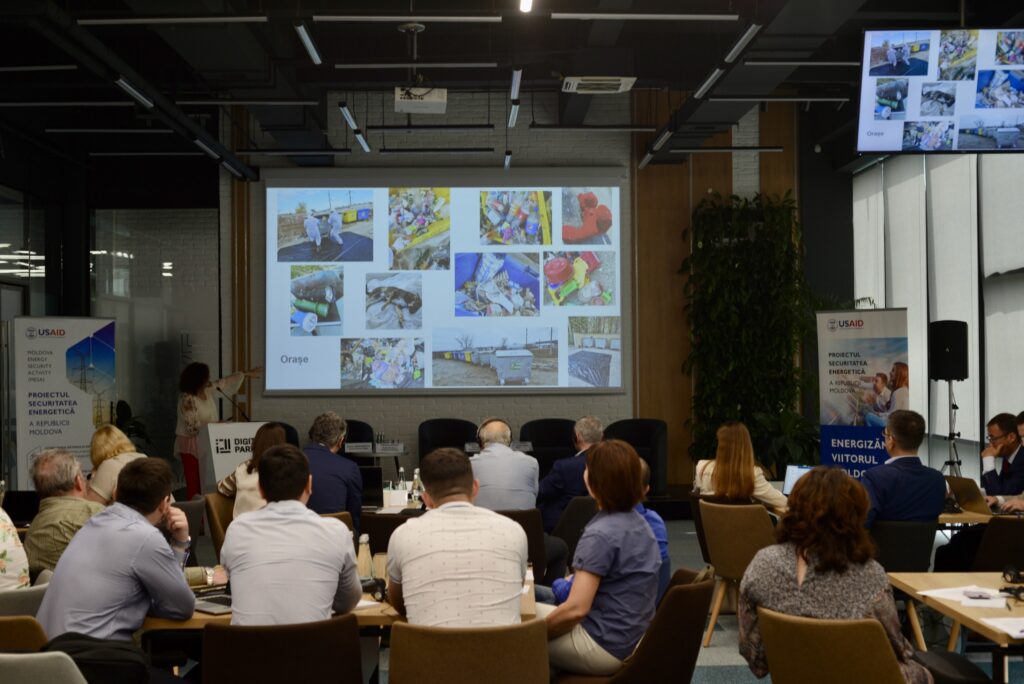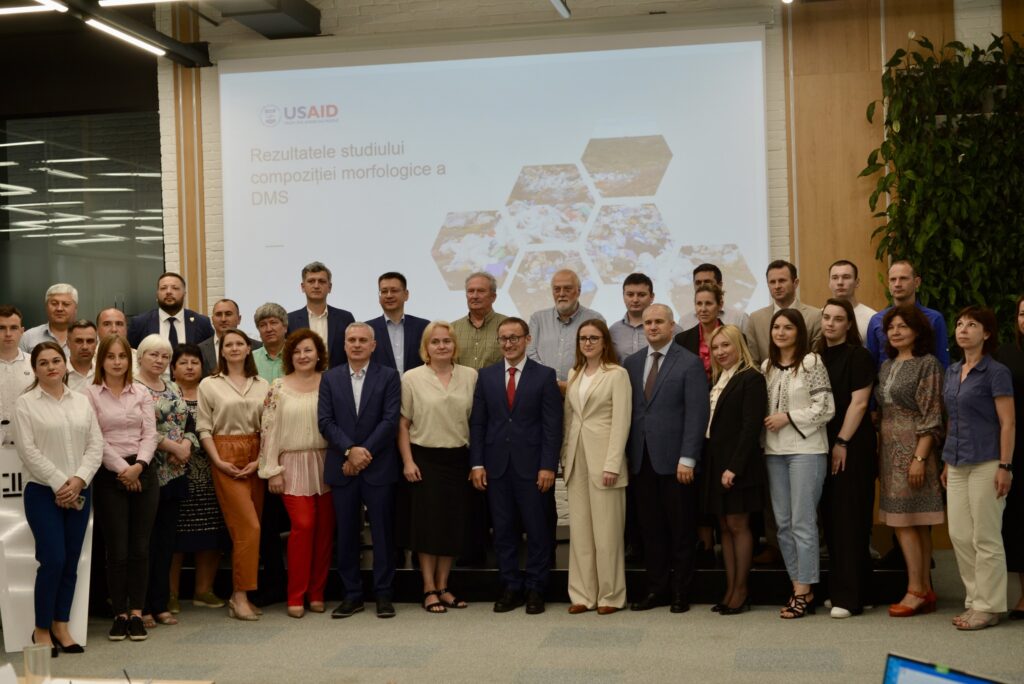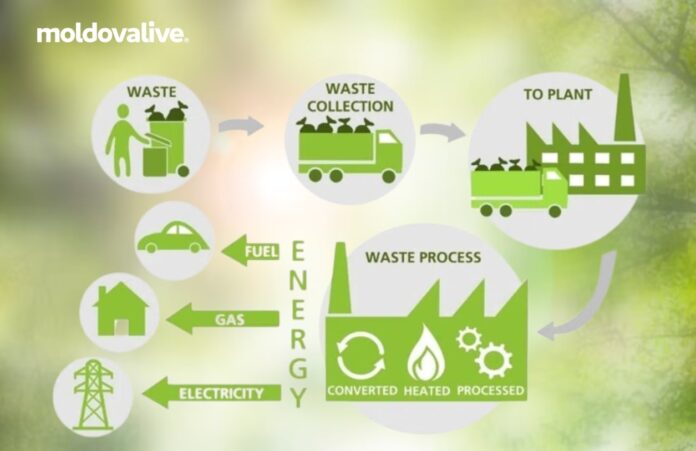We can convert about 65% of the solid household waste generated in Chisinau and Balti into energy. These are the findings of a USAID-supported study, carried out through the Moldovan Energy Security Project (MESA), on Moldova’s prospects for energy from waste.
The results show that the share of biodegradable waste (food waste, paper, cardboard, textiles, leather, plant, and wood waste) in the solid household waste stream in the Republic of Moldova is about 64.7%, which implies a significant potential for the Republic of Moldova to obtain electricity and heat from waste.
The Republic of Moldova has set a national target of 2030 of no less than 27% of the electricity consumed from renewable sources. At present, these represent about 6%.
Recyclable waste such as paper and cardboard, plastics, glass, and metals account for an average of 26% in the residential sector and up to 36% in the commercial sector. The substantial presence of recyclables in waste indicates that we are poorly implementing current recycling and reuse practices. It highlights a significant opportunity to increase recycling efforts by implementing awareness campaigns among citizens and improving overall waste management.
FOR THE MOST IMPORTANT NEWS, FOLLOW US ON TWITTER!
The study authors also discussed the most advantageous commercial technologies for producing energy from waste by considering environmental protection. During the seminar, participants exchanged views and ideas on the advantages and disadvantages of the proposed commercial technologies for producing energy from the various municipal solid waste streams under consideration in the context of international experience in this field.
Each citizen in the Republic of Moldova produces about 400 kg of waste annually.





